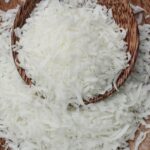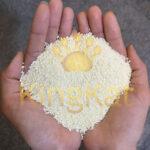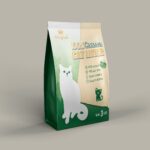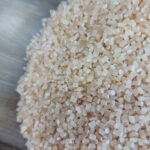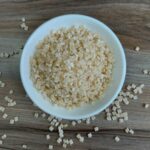CASHEW NUT SHELL OIL
In the fast-evolving textiles industry, the demand for sustainable and efficient solutions has become more pressing than ever. One such innovation making significant strides is the application of modified tapioca starch in yarn sizing. Yarn sizing, a crucial step in textile production, involves coating the yarn with protective substances to improve its strength and reduce breakage during weaving. While traditional materials like corn starch, wheat starch, and synthetic chemicals have been commonly used, modified tapioca starch is emerging as a game-changer due to its numerous benefits. Below, we explore the top 10 benefits of using modified tapioca starch in yarn sizing and how it contributes to the textile industry’s push toward more sustainable, efficient, and cost-effective solutions.

Table of Contents
Toggle1. Eco-Friendly and Sustainable
Sustainability is at the heart of modern industrial practices, and the textiles industry is no exception. Modified tapioca starch, derived from the roots of the cassava plant, is biodegradable and sourced from renewable resources. Unlike synthetic sizing agents, tapioca starch does not contribute to environmental pollution, making it an excellent choice for manufacturers looking to reduce their carbon footprint and align with eco-friendly practices. By switching to modified tapioca starch, textile companies can play a significant role in supporting a more sustainable future.
2. Improved Yarn Strength
One of the primary purposes of yarn sizing is to strengthen the yarn and reduce the chances of breakage during the weaving process. Modified tapioca starch creates a robust film around the yarn, which enhances its tensile strength. This extra protection allows the yarn to withstand the high-speed movements of the weaving loom without snapping, leading to increased efficiency and a smoother manufacturing process.
3. Better Adhesion and Film-Forming Properties
Modified tapioca starch exhibits superior film-forming abilities, which ensures that the starch adheres evenly to the surface of the yarn. This uniform coating improves the overall performance of the yarn, resulting in fewer defects in the final textile product. Moreover, the improved adhesion means that less starch is required to achieve the desired effect, reducing material costs and waste.
4. Enhanced Flexibility and Softness
Traditional sizing agents can make yarn stiff and brittle, which sometimes compromises the softness and flexibility of the final textile. In contrast, modified tapioca starch provides excellent flexibility without sacrificing strength. This is particularly beneficial for delicate fabrics like silk or fine cotton, where maintaining softness is crucial for the end product’s feel and quality.
5. Cost-Effective Alternative
Another significant advantage of using modified tapioca starch is its cost-effectiveness. Cassava, the plant from which tapioca starch is extracted, is abundantly grown in many tropical regions, making it a readily available and affordable raw material. Additionally, because tapioca starch requires fewer additives and processing steps compared to synthetic sizing agents, it offers a more economical solution for textile manufacturers. Lower costs in yarn sizing translate to increased profit margins for companies, without compromising product quality.
6. Improved Weaving Efficiency
Yarn breakage during weaving is a common issue that leads to downtime and increased production costs. By improving yarn strength and reducing friction, modified tapioca starch significantly lowers the rate of yarn breakage, resulting in smoother and faster weaving operations. This enhanced efficiency not only saves time but also reduces waste and lowers overall operational costs.
7. Easy to Remove in the Desizing Process
After the weaving process, the sizing agents must be removed from the fabric in a process called desizing. Some traditional sizing agents are challenging to remove, requiring harsh chemicals or excessive water usage. However, modified tapioca starch is easily dissolved in water, making the desizing process faster and more eco-friendly. This ease of removal also reduces the need for additional chemical treatments, contributing to a cleaner and greener manufacturing process.
8. Compatible with Various Fibers
One of the versatile properties of modified tapioca starch is its compatibility with different types of fibers. Whether it’s cotton, polyester, wool, or blends, tapioca starch works effectively as a sizing agent across a wide range of textiles. This adaptability makes it a valuable asset for textile manufacturers who work with multiple materials and need a consistent sizing solution.
9. Reduction in Water Usage
Water usage is a significant concern in the textile industry, particularly during the sizing and desizing processes. Modified tapioca starch, with its efficient adhesion properties and ease of removal, helps reduce the amount of water needed in these processes. Not only does this lower the environmental impact, but it also cuts operational costs by reducing water consumption and wastewater treatment expenses.
10. Health and Safety Benefits
Many synthetic sizing agents used in the textile industry can be hazardous to workers’ health and safety, causing skin irritation, respiratory issues, and other health concerns. In contrast, modified tapioca starch is a natural, non-toxic substance that poses no such risks. By using tapioca starch, textile manufacturers can create a safer work environment for their employees, while also producing safer end products for consumers.
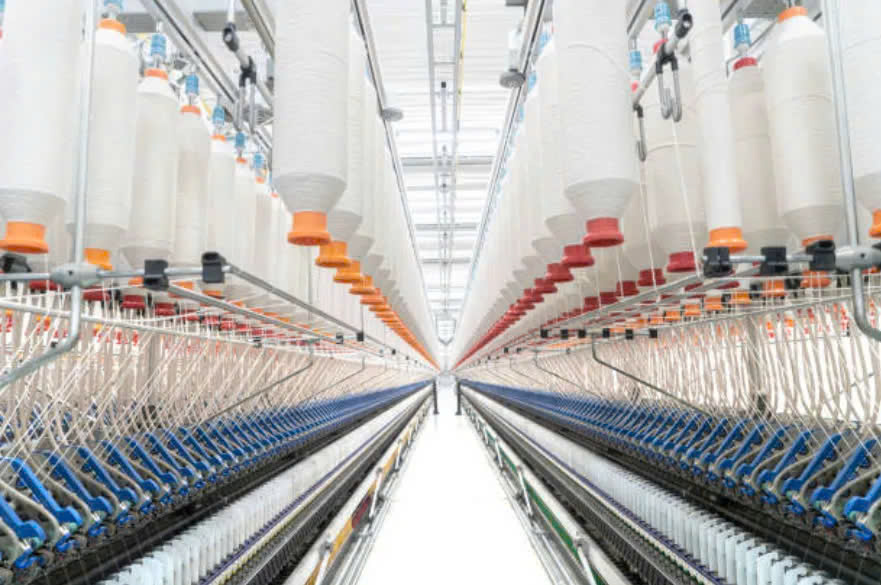
Conclusion
The use of modified tapioca starch in yarn sizing presents a host of advantages for the textiles industry. From its eco-friendly properties and cost-effectiveness to its ability to improve yarn strength and enhance weaving efficiency, tapioca starch is proving to be a formidable alternative to traditional sizing agents. As the textile industry continues to embrace sustainable practices and innovative technologies, modified tapioca starch is poised to play a central role in shaping the future of fabric production. By adopting this natural and versatile solution, textile manufacturers can achieve higher productivity, better-quality fabrics, and a smaller environmental footprint.



